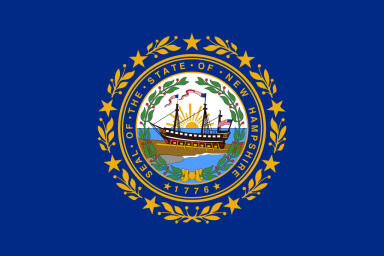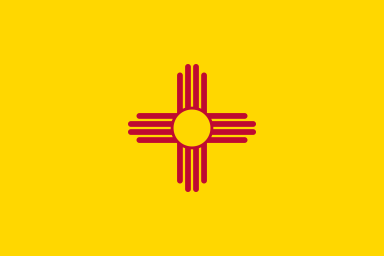Maine Workers’ Compensation Laws

Work-related injuries and diseases can be relatively common occurrences in any workplace throughout the country, and the same is true for the state of Maine.
In fact, in 2021, the United States Bureau of Labor Statistics found that the state had the highest number of occupational injuries and illnesses, averaging 4.7 cases for every 100 full-time workers it had.
This figure was significantly higher than the nationwide average of 2.8 cases per 100 workers in the same year.
According to the Maine Department of Labor, however, these statistics do not necessarily translate into a failure for the state, as they simply indicate how diligent workers are in reporting any harm they suffer and securing compensation for their injuries.
With injuries being part of the reality in many workplaces, it is vital for employees in Maine to learn how they can be compensated in case they incur an injury that prevents them from working.
To help that end, this article will provide them with information related to the workers’ compensation process in the state.
It will also describe the statutory rules, requirements, and limitations that can affect their claim, along with the alternate options they can take if they do not receive the compensation they deserve.
Maine Workers’ Compensation Insurance Requirements
Under Maine law, all public and private employers are required to have workers’ compensation insurance.
This includes design professionals and those in municipal school committees, water districts, and “quasi-public corporations.”
Workers’ compensation insurance will be used to help workers financially as they recover from any injury or illness that they have suffered in a work-related accident.
If an employer does not have such a policy, they will still be held liable for paying for the costs related to an injured worker’s recovery, and they can be sued by a worker as well.
The failure to obtain workers’ compensation insurance can lead to a class D criminal charge, which may result in a fine of up to $10,000 or an amount equal to 108% of the value of their workers’ compensation insurance premium, whichever is greater.
The latter will be calculated according to the amount that the employer should have paid during the time they failed to obtain their workers’ compensation coverage.
Exemptions to Maine’s Workers’ Compensation Requirements
There are various types of employers who are not required to have workers’ compensation insurance in Maine. They include:
Those in the agriculture or aquaculture industries with seasonal or casual workers, but only if they have employer’s liability insurance that is worth a minimum of $25,000, with at least $5,000 for the coverage of medical payments.
Those in the agriculture or aquaculture industries who have six workers or fewer, but only if they have employer’s liability insurance that is worth a minimum of $100,000 multiplied by the number of full-time equivalent employees they have, with at least $5,000 for the coverage of medical payments.
Those with employees who work as domestic servants in a private home.
Sole proprietors who have no employees; they also do not need to complete any waiver forms to be exempt from coverage requirements.
“Owners” of limited liability companies; if a member of a limited liability company has a spouse, parent, or child who is also working under it, the latter can waive their rights to any workers’ compensation benefits in writing for themselves.
Nonprofit corporations.
Independent contractors and subcontractors.
Additionally, a stockholder in a corporation who owns at least 20% of the outstanding voting stock can waive their rights to compensation-related benefits, and their child, spouse, or parent can do likewise.
The same counts for the parent, child, or spouse of a partner or sole proprietor.
How To Obtain Workers’ Compensation Insurance in Maine
An employer in Maine can get workers’ compensation insurance from any licensed agent or firm authorized to sell policies in the state.
Those exempted from the state’s requirements but opt to have employer’s liability insurance coverage as an alternative can also purchase a policy from authorized insurance carriers. This is used to cover any costs related to damages and legal fees if an employer is sued by their employee.
As an alternate option, employers can apply for individual or group self-insurance by following the guidelines imposed by the state’s Bureau of Insurance.
However, choosing self-insurance means that the employer will be responsible for paying all the costs involved if one of their workers suffers an injury.
On the other hand, under group self-insurance, multiple businesses work together as members to pay insurance premiums and shoulder any member’s losses.
In this setup, each member is financially responsible for the compensation of all of the group’s employees, not just their own.
Maine Workers’ Compensation Benefits
As mentioned above, workers’ compensation insurance is used to reimburse any financial losses a worker may suffer after being injured or falling sick due to work-related hazards.
Any recompense a worker receives comes in the form of benefits, though they are not generally given to the worker until after seven days have passed.
However, if an employee’s incapacity to work due to injury lasts more than 14 days, they will also be compensated for the first seven days.
Workers’ compensation benefits typically include:
Coverage for costs related to the worker’s medical treatments.
Weekly wage replacement for any income that the worker has lost as a result of their absence from work due to their injury; in most cases, this is equal to two-thirds of the worker’s average weekly income, capped at 90 percent of the average weekly wage in the state.
Payments for vocational rehabilitation, such as retraining and job placements.
Disability benefits, including those related to the loss of any body part or its function because of the worker’s injury.
Death benefits, including burial costs, if the worker died as a result of their injury or sickness.
In addition, an employee can receive benefits for any “mental injury” that they suffer due to work-related stress.
These benefits are only granted if it can be proven that no other source of stress caused the employee’s injury and that the stress they dealt with was greater than the average amount of pressure or tension experienced by a worker on average.
The validity of mental injuries is determined by referring to objective standards and scrutinizing the actual events that led to the employee’s stress.
It must be noted that there are specific injuries that are not compensable under Maine’s workers’ compensation law.
Those whose injuries fall under these categories can pursue compensation through other means, such as a personal injury claim.
Examples of non-compensable injuries include:
Those sustained in ridesharing accidents, whether the employee was riding in a private, group, or employer-sponsored carpool; using a ridesharing service; or commuting via public transportation.
This does not include drivers, mechanics, and other employees of a carpooling or ridesharing program.
Those sustained while participating as a volunteer in an employer-sponsored sports team or event.
Those sustained while the employee was engaging in domestic service, such as housekeeping and food preparation.
Subsequent injuries or diseases that are not “casually connected” to a prior injury or illness that is compensable.
Preexisting physical conditions, unless the employee suffers an injury at work that aggravates any condition they might have.
How to File a Workers’ Compensation Claim in Maine
To get workers’ compensation benefits, an injured employee must follow the requirements involved in filing a claim.
This procedure also requires the worker’s employer to follow steps that will expedite the claim, giving each party a statutory responsibility throughout the entire process.
When Is the Deadline for Workers’ Compensation Claims in Maine?
Upon suffering an injury or disease due to a work-related accident, a worker must notify their employer, manager, or supervisor within 60 days from the date of the incident.
This deadline applies to any injuries or illnesses suffered on or after January 1, 2020, as defined by Maine’s current laws. Making an initial injury report is essentially the first step in making a workers’ compensation claim.
Once a worker has alerted their employer and received medical treatment for the harm they have suffered, they will be given a maximum of one year to file a workers’ compensation claim.
Again, this deadline will begin counting down from the date when the worker suffered their injury or illness.
In order for a claim to be established, the worker must provide their employer with a notice of the time, place, and cause of their injury within the same period if they have not done so yet.
If the worker’s injury led to any physical or mental disability that prevents them from filing their notice within the one-year deadline, they will be given an extension of 10 days once they recover from that disability.
On the other hand, if the worker died from their injury or during the 10-day extension without having filed the notice, their representative will be given 60 days from their appointment to submit it on their behalf.
If the notice has any errors, the employer must notify the worker or their representative about the issue within 10 days.
The latter parties will then be given up to 30 days to submit a new notice with the errors addressed.
A Step-By-Step Guide on Filing a Workers’ Compensation Claim in Maine
Step 1: Filing an Injury Report
Upon being injured, a worker must seek immediate medical treatment to address the harm they suffered. They must also alert their employer or supervisor of their injury within 60 days, as mentioned above.
Once this is done, the worker can begin focusing on their recovery while their injury and claim are being assessed.
Step 2: Seeking Additional Medical Treatment
If their employer has chosen a healthcare provider, the worker must be treated by the provider in question for the first 10 days of their injury.
Once 10 days have passed, the worker will have the option to seek treatment under a new provider with their employer’s approval, though their employer can ask them to get a second opinion if they disagree with the option.
Whenever the worker requires any specific treatment or aid during the course of their recovery, they must immediately inform their employer about it.
The latter will then pay for the treatment or aid in question or reimburse the worker if they incur any costs related to it.
During this time, the employer may also ask for any information related to the worker’s treatment or the diagnosis of their injury.
Generally, the healthcare provider who is treating the worker will provide this information on the worker’s behalf in the form of medical records that keep track of their recovery.
Step 3: Waiting for the First Report of Injury Copy
After being notified of the injury, the employer must complete the First Report of Injury form and give the injured worker a copy. This must be done within seven days from the time when the worker informed their employer about the incident.
The form itself will be submitted to the company’s insurance carrier to notify them about the worker’s injury and their claim for compensation.
Step 4: Waiting for and Receiving Compensation Benefits
Upon receiving the injury notice, the insurance carrier will have up to 14 days to process the worker’s claim and make a decision.
As specified in the previous step, the worker will only begin receiving their benefits after seven days have elapsed, although they will also be compensated for those days if their injury prevents them from working for at least 14 days.
If the insurance carrier approves the worker’s claim, they must complete a Memorandum of Payment that will detail the amount of benefits the worker will be given.
If the carrier denies the claim, they must submit a Notice of Controversy to the Maine Workers’ Compensation Board stating the reason for the denial.
Regardless of their decision, they must provide the worker with a copy of either of these forms.
Step 5: Post-Recovery and Returning To Work
After the worker has recovered from their injury and has been cleared to return to work, their employer must return them to their old job if the position has not yet been given to another employee during the worker’s absence.
If the worker cannot return to their old position or if their current condition prevents them from working at the same rate they did before their injury, their employer must provide them with a different position that fits their condition and current working capacity.
What Should One Do If a Workers’ Compensation Claim in Maine Has Been Denied?
If an insurance carrier denies an injured worker’s claim, WCB will receive the Notice of Controversy that the carrier will send. Then, it will contact the worker and ask them if they wish to appeal the decision.
From here, the worker can choose to undergo mediation, which is the first step involved when appealing a denied claim.
The worker will meet with the insurance carrier and attempt to settle the issue with the help of an assigned mediator.
If both parties reach an agreement, the mediator will create a Record of Mediation that details the terms agreed upon. This record will be signed by those involved.
However, if no agreement is reached, the mediator will file a Record of Mediation stating that both parties cannot resolve the dispute.
From this point, the worker can choose to file a petition for a formal hearing, which will be scheduled by WCB.
The hearing involves a discovery process wherein all the parties involved exchange any required information; on the worker’s part, this will include their medical records.
Both sides will testify, witnesses will be given the time to corroborate or refute claims, and the Board will evaluate any relevant evidence.
An Administrative Law Judge will make a decision once all parties have filed position papers.
If the worker does not agree with the judge’s decision, they can appeal again by filing a notice with WCB’s Appellate Division and all the other parties involved within 20 days from the date of the decision.
The worker must have a copy of the decision, the Notice of Intent to Appeal form, and the transcript of their hearing, among other required documents.
The appeal will then be scheduled and presided over by three Administrative Law Judges, who will issue a written decision.
As a final option, in case they still do not agree with the appeal decision, the worker can bring their case within 20 days to the Maine Supreme Court, which can accept or deny the appeal at its discretion.
The worker will be given the opportunity to prepare their petition and required documents as instructed by the clerk’s office, though their case will end if the Supreme Court denies their appeal.
Legal Resources for Injured Workers in Maine
Maine Workers’ Compensation Board - Worker Advocate Program
Through its Worker Advocate Program, Maine WCB provides free legal assistance for any eligible employees filing claims.
An employee can qualify if they have not retained any private legal counsel if their issue has not been resolved, and if they have participated in the Board’s troubleshooter program.
The Board’s website has the contact information of the advocates that workers can approach to inquire about the program’s services.
Facts About Maine’s Workers’ Compensation Laws
This online manual, which was created and compiled by Maine WCB, offers a descriptive overview of workers’ compensation laws in the state for those who wish to learn more about the benefits they can receive and the guidelines they will typically encounter when filing a claim.
It also contains the contact information of Board offices at various locations throughout the state.
ABA Free Legal Answers - Maine
Free Legal Answers, which was established by the American Bar Association, addresses legal inquiries from individuals and families alike at no cost.
Users can register on the website to submit their questions, after which they can begin receiving answers from volunteer attorneys. However, they cannot use the website to seek potential legal representation or answers related to criminal law.
Free Legal Answers can be used by those who have concerns involving civil law matters, such as employment and unemployment.
Expertise.com StaffAuthor
Step into the world of Expertise.com, your go-to hub for credible insights. We don't take accuracy lightly around here. Our squad of expert reviewers, each a maestro in their field, has given the green light to every single article you'll find. From rigorous fact-checking to meticulous evaluations of service providers, we've got it all covered. So feel free to dive in and explore. The information you'll uncover has been stamped with the seal of approval by our top-notch experts.




